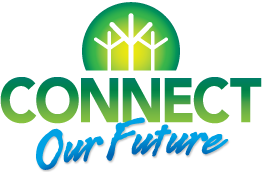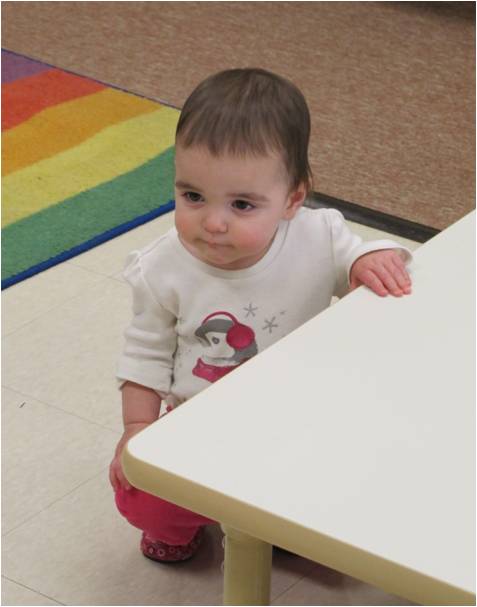Early childhood education occurs before kindergarten for infants and young children, typically up to age four or five. This is a critical period in a child’s development when structured discovery through play meets the child’s physical, intellectual, language, emotional, and social needs, preparing children for success in primary school. It is particularly important for children in low income, disadvantaged, or non-native-English-speaking households who may have few opportunities for early learning because of limited access to museums and outside-the-home experiences, and the development of language, social, and cognitive skills in the home.
Why is this important to your community?
While educating very young children has intrinsic value, it also has social and economic value to local communities and the nation. Studies in the US and internationally have shown that children who received early childhood education were more likely to graduate from high school, earn more in skilled jobs, own a home, and otherwise become contributing members of society. Pre-school education is particularly important in situations where families have two working parents, or are otherwise unable to provide language assistance, regular stimulus, educational experiences, outings that broaden a child’s perspectives and stimulate inquiry, or that help the child independently follow directions and function in group settings. Children who enter kindergarten without this early childhood background and group socialization, or who lack proper nutrition at an early age, have been shown to start behind their peers, and often stay behind, throughout their academic careers. This not only hinders their academic success and their prospects for getting and keeping good jobs, it also focuses teacher attention away from the class as a whole, making it more of a challenge to move the whole class forward. Early childhood education is a crucial element in breaking the cycle of cycle of under-education, poverty, and dependency, and is an important tool in helping all public schools perform well—a key economic development concern.
Where is it appropriate to use?
What priorities does it address?
What other tools are related?
How does it work?
Early childhood education programs operate at the federal, state, and local levels through public and private schools, licensed child care providers, nonprofits, and faith-based organizations.
Head Start / Title 1
Head Start is a federal program that promotes school readiness for children in low income families from birth to age five. Operating through school districts, county departments of social services, or community action agencies, Head Start programs provide a learning environment that supports children’s growth in areas such as language, literacy, and social and emotional development, in partnership with parents. Title 1 is a complimentary federal program which provides funding for pre-kindergarten programs for schools with concentrations of low income and high risk children.
North Carolina Pre-K
North Carolina Pre-K is a voluntary pre-kindergarten program designed to prepare at risk four-year-olds for later success in school. Administered by the NC Department of Health and Human Services, Division of Child Development and Early Education, North Carolina Pre-K provides funding for programs through partnerships with local public schools, licensed child care centers, and nonprofit and faith-based pre-schools.
South Carolina First Steps
South Carolina First Steps to School Readiness is the state’s comprehensive early childhood education initiative, the nation’s third public-private partnership for childhood education. First Steps has partnerships with education entities in all South Carolina counties, with over 150 approved providers in 61 school districts. As with Head Start and North Carolina Pre-K, South Carolina First Steps is available to eligible low income families.
Public School Districts
While the federal and state programs described above provide for early childhood learning for low income and high risk children, many public school districts lack the budgetary resources to provide pre-kindergarten programs to all children. For this reason, many rely on funding provided by local nonprofits and foundations, such as the Wake County Smart Start program described below. In addition, most communities have early childhood learning programs provided through private for-profit or nonprofit childhood learning centers, as well as pre-schools operated by faith-based organizations.
Local governments, outside of school districts, typically do not operate early childhood educational programs. However, local governments, through their regulatory authority, can act to promote access to early childhood programs in the community, or to make access more difficult. Because of the importance of sending kids to school well-prepared to succeed, as a contributor to a community’s overall prosperity and success, local leaders may want to increase their interest in ensuring that this community resource exists.
Ready to get started?
Using the Tool
The following are basic steps in assessing the adequacy of local early childhood education programs.- Identify Existing Programs Contact state agencies such as South Carolina First Steps and North Carolina Pre-K to identify licensed and certified local early childhood education providers. Identify pre-K programs available through local public schools and their eligibility requirements and enrollment levels. Identify non-certified pre-schools operated by faith-based organizations or others, being aware that in NC, there is no requirement for licensure or certification of pre-schools that serve children for less than four hours a day. This includes many bi-lingual programs, Mother’s Morning Out programs, and other programs that may play an important role in readying potentially at-risk children for school.
- Identify Participation Gaps and Barriers to Participation Compare total enrollments in current programs with the local school age population, both community-wide and by census tract to estimate how many children are not currently participating in pre-kindergarten programs, particularly in low income areas. Research who is not participating, and why; reasons could include cultural norms, transportation, access, cost, or lack of knowledge about available programs and their importance in ensuring children’s readiness for kindergarten.
- Create Coalitions and Partnerships To create a strategy to increase participation in pre-K programs, create a coalition of local public and private providers as well as state education agencies to identify available resources (foundations, nonprofits and state and Federal sources). Identify those existing providers that are best suited to attract and provide for the additional participation based on location and capacity. Be sure to engage local economic development officials, who may or may not realize that they have a vested interest in this. Also engage groups that may represent families that may have great need for these opportunities, such as the Urban League, grassroots community organizations, and coalitions of non-native-English-speakers.
- Review Local Policies Review local zoning and land use policies to determine whether any local policies are adversely affecting access to early childhood programs. Remember that many of the families that may need these the most may lack transportation; are there policies that can be revised to either put facilities closer to the families that need them, or to provide transportation by expanding local demand-response transit?
- Consider a Public Education or Marketing Campaign Talk with partners about developing a marketing campaign that promotes early childhood education. This can be as simple as working with libraries to offer parenting classes on how to read to children in the home, and holding library card promotions, to offering community parks and rec activities such as pre-K nature walks, or just talking about the importance of early childhood education to the community.
Partners
- Advocacy Groups
Where has it worked?
Smart Start - Raleigh, NC
About the Program
Founded in 1996, Wake County Smart Start is a non-profit organization with the mission to build the capacity of families and the community to prepare children for success in school and in life. Wake County Smart Start administers the North Carolina Pre-K program, serving at-risk children, and provides support and resources to Project Enlightenment, the pre-K program of the Wake County Public School System.
Why it works
Together with Head Start, Catholic Charities, and Wake County Human Services, more than 20,000 children from birth to age 5 have access to the highest caliber of early childhood education. In addition to providing funding through donations, Smart Start also provides manuals and a Partner Toolkit to ensure that programs are operating using outcome-based best practices.
Project Enlightenment - Raleigh, NC
About the Program
Partially funded by Smart Start, Project Enlightenment is an early childhood education and intervention program of the Wake County Public School System. With a staff consisting of educators, child psychologists, child development specialists, and counselors, Project Enlightenment provides a comprehensive array of early childhood services and has become a national model. Services include parent education and counseling, training for early childhood educators, a resource center for teachers and parents, demonstration classrooms to showcase best practices, and development screenings to investigate concerns about a child’s development and identify needs for special educations or focused attention on specific skill sets.
Why it works
The funding and other resources made available by grants and donations to Smart Start enable the Wake County School District not only to provide early childhood education to every child in the district, but to become a resource to expand training, conduct research, and advance the state-of-the-art of early childhood education best practices.




